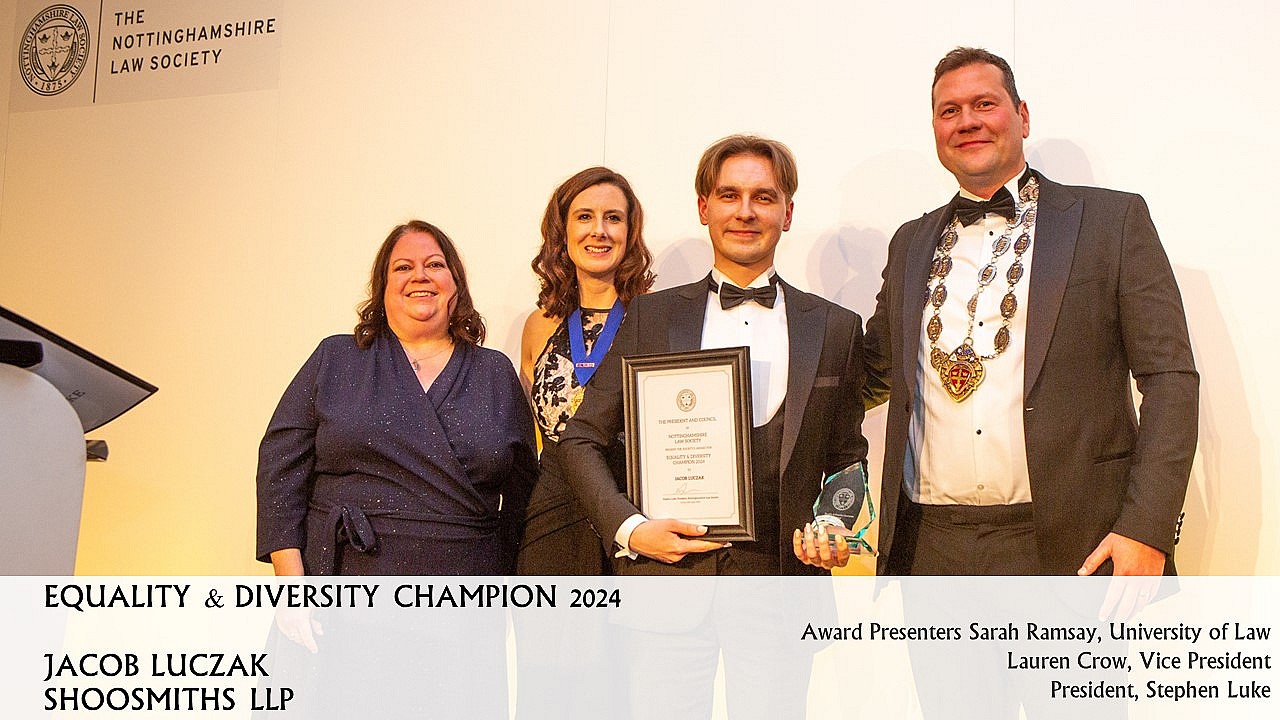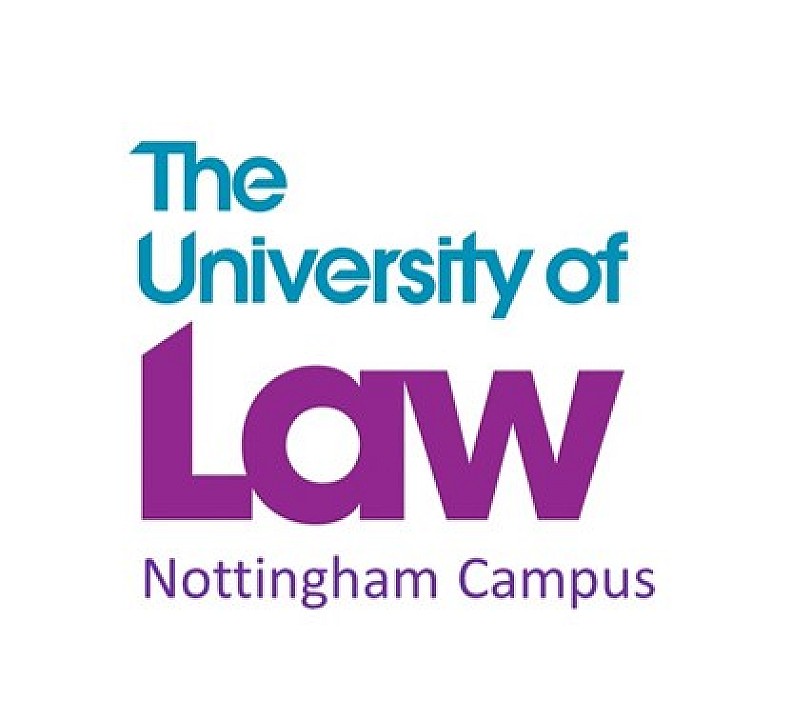---JAKUB-LUCKZAK-large.jpg)
❖ How did you feel on winning the Equality & Diversity Champion award this year?
I felt incredibly honoured and grateful to receive this award. It goes without saying that I would not be a winner without the support of amazing people and our Nottinghamshire community. The award validated all the hard work and dedication I put into promoting equality, diversity and inclusion. It also marked a milestone in my personal and professional growth, setting a high bar for the future: I am excited to see what will come next!
❖ What do you see as the biggest barrier in the profession?
Without a doubt, social mobility. For example, according to the SRA report ‘Diversity in law firms' workforce’, two thirds of solicitors still come from more priviliged backgrounds. There is some slow progress in economic accessibility via new routes, e.g., the SQE or legal apprenticeships; however, we should not be forgetting that finances are not the only obstacle aspiring solicitors are facing. It is equally important to equip underrepresented candidates with cultural capital, so they can compete for opportunities against more privileged peers on an equal footing. Therefore, I believe that professional mentoring, like the NLS mentoring, is invaluable for social mobility and is what we should be focusing on more to improve access to the profession.
❖ What is your legal specialism and why did you choose it?
I am a future trainee solicitor at Shoosmiths, so I do not have a legal specialism at the moment; I have only just started a law conversion course at BPP University. However, before that, I worked in the real estate department at Shoosmiths. As it is the case for many lawyers, my path to law was everything but straighforward. Initially, I joined Shoosmiths to cover for a maternity leave and it so happened to be a role in real estate. With my previous commercial background, I really enjoyed real estate because it was a very ‘tangible’ area of law: it was easy to see how the office work translated into practical benefits for clients, especially commercial occupiers. I had never worked at a law firm prior to that, so it was the right step for me to better understand the legal profession and to solidify my motivation for becoming a solicitor. If someone were unsure whether law is the right career for them, my recommendation would be to apply for any role at a law firm and find out in practice.
❖ How have you influenced the inclusivity of the LGBTQIA+ community in your workplace?
I like to think about my influence as being twofold. Firstly, by working closely with the firm’s DEI team, employee networks, and senior stakeholders. This allowed me to advocate for change on both the local and central levels, ensuring that improvements were systemic and applicable to all colleagues. Secondly, by being openly gay, normalising that LGBTQIA+ people can thrive in any profession. I strongly believe in representation, because it helps people come out of their shells (no pun intended!) and aim higher than they initially would have.
❖ Extra-curricular representation on committees is important to you, how do you manage that additional workload alongside your day-to-day responsibilities?
I am not going to give the ‘perfect’ answer that I am always on top of everything. The truth is that sometimes I do not manage that additional workload. Day-to-day responsibilities can easily become overwhelming, especially at law firms; often, it is simply too much pressure for one person. For example, I attended 2024 Pride events in three cities: Birmingham, Leeds, and Nottingham. As much as I would have liked to, I could not attend Pride anywhere else. This was where delegation became crucial: there was only so much one person could do alone. Therefore, as long as I can rely on other people, I know that, collectively, we all make a difference. But for the support from the amazing people, I would not have been able to have managed that additional workload entirely on my own. There is a real power in community.
❖ How does an improved level of diversity benefit the legal profession and its clients?
There is plenty of evidence on how higher diversity benefits profitability, one of the key metrics for law firms. Not only do diverse leadership teams achieve higher financial perfomance; they also attract the top talent. Diverse employees, who no longer see glass ceilings or experience discrimination in their workplace, are likely to be more engaged and productive. Moreover, the more diverse the lawyers, the better representation of society they serve, and therefore the clients. This brings a plethora of perspectives and innovative solutions to law firms, making them more competent and competitive on the market. Honestly, the number of benefits is so overwhelming that, in the 21st century, diverse law firms should already be the norm, not the exception.
❖ What else do you enjoy outside of the law, and you achieve a work/life balance?
I am very interested in occupational psychology, especially the topic of psychological safety. It is fascinating to me how much managerial skills can make an impact on productivity, innovation, and work-life balance. For anyone interested in more details, I would highly recommend ‘Right Kind of Wrong: The Science of Failing Well’ by Amy Edmondson.
Regarding my own work-life balance, I would say that it is definitely a work-life ‘imbalance’, in favour of the former. However, what I would like to highlight here is that my work-life ratio is not rigid: it fluctuates in accordance with my boundaries. As soon as I recognise the imbalance becoming unhealthy, I take necessary steps to prevent it from escalating, e.g., talk to someone about it.
❖ What is the funniest thing you have seen working in law?
Love this question! In my opinion, “I need a coffee!” became a new socially acceptable euphemism for expressing tiredness, brain fog or an overall lack of focus. I find it funny in the legal context, especially when lawyers lose their train of thought and use the coffee example to politely excuse themselves. Perhaps, soon we may be hearing ‘spill the coffee’ to mean sharing our most embarassing stories when we did not feel like ourselves.
Disclaimer: all answers and opinions are my own as an individual and do not represent any organisation I mention - Jakub Luckzak

This award was kindly sponsored by the University of Law (Nottingham Campus)
